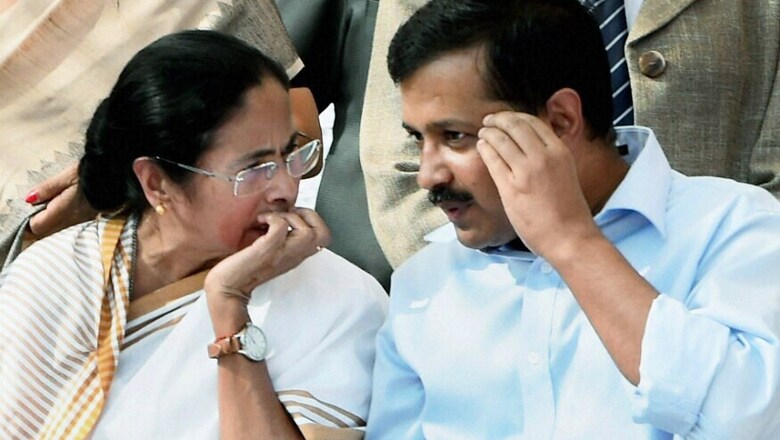
views
New Delhi: A debate is raging on whether state governments can choose not to implement the amended Citizenship Act given their stiff opposition to some of its provisions.
The Constitution and the law are with the central government, which has taken a stand that states have no powers to deny implementation of a central law.
A central law, which is in the Union List and comes under the Seventh Schedule, is a complete prerogative of the government at the Centre. Thus, granting or taking away citizenship is in the exclusive domain of the central government, which acts through the Ministry of Home Affairs in this matter.
Article 256 of the Constitution defines the obligation of states and the Union government. It provides that the executive power of every state shall be so exercised as to ensure compliance with the laws made by Parliament and any existing laws which apply in that state. The provisions add that the executive power of the Union shall also extend to giving of such directions to a state as may appear to the Government of India to be necessary for that purpose.
Similarly, Article 257 holds that the executive power of every state shall be so exercised as not to impede or prejudice the exercise of the executive power of the Union, and that the executive power of the Union shall extend to the giving of such directions to a state as may appear to the Government of India to be necessary for that purpose.
Part XI of the Indian Constitution and relevant provisions therein cast a legal obligation upon the states not to defy the Centre.
But a closer look will demonstrate that citizenship is a central law that works with cooperation of the state governments at every step, right from making an application till conferment of the certificate of citizenship.
In terms of the procedure laid down under the existing Citizenship Rules, 2009, all applications for citizenship, along with the declaration and oath of allegiance, need to be submitted to the Collector, District Magistrate or Deputy Collector of the area concerned. These are state government officials. Even the online application forms ought to be printed and submitted in these offices.
Thereafter, these applications are forwarded to the Ministry of Home Affairs (MHA) by the offices under the state governments.
After acceptance of the application for the grant of Indian citizenship by the central government, the applicant is required to furnish through the state government other requisite documents, including the certificate of renunciation of his/her foreign citizenship issued by the mission of the concerned country.
Finally, citizenship certificates are yet again sent to the state government, which after completing all the formalities prescribed in Indian Citizenship Rules, 2009, issues the same to the applicant. Necessary police verifications are also done at the end of the local police stations.
In light of this, cooperation of the administrations and the law enforcement machineries in states looks indispensable in the current regime.
Drawing a parallel with the Passport Act might help. It is the Ministry of External Affairs that is the nodal body and exclusively authorised to give passports. But when an application is made, role of state administration and local police is inevitable in the present scheme of things.
It has been the concept of cooperative federalism that drives and makes enforceable many such central laws within the territory of a state.
States must exercise their executive power in compliance with the laws made by the central government and must not impede on the executive power of the Union.
At the same time, the central government must promote cooperative, coordinate, constructive and multi-dimensional Centre-State relations, given the democratic system of governance at the national, state and local levels and the pluralities of its culture in terms of ethnic, linguistic, religious and other diversities which cut through the states.
Governors are appointed by the central government to oversee the states.
Under Article 356 of the Constitution, a Governor can recommend President's Rule in a state on issues of national security or breakdown of constitutional machinery. The reasons may include the issue of disregard to implement a parliamentary enactment.
However, this power is not unbridled and must pass the muster of constitutionality before a high court or the Supreme Court. In a body of judgments, the top court has ruled that the power under Article 356 cannot be exercised in a malicious manner and that recommendations by the Governors must be on sound principles.
Shortly, the central government will need to frame rules under the amended Citizenship Act, putting in place a mechanism for implementation of the law. The participation and involvement of state administration appears unavoidable and necessary.
With all the contentions, resistance and apprehensions around the implementation of the new law, both Centre and state governments must act in tandem with the idea of constructive and cooperative federalism to ward off further tensions.
It will require a great deal of commitment and accommodation from both sides to ensure institutional bodies under state governments help the Centre in implementing the new Citizenship Act.



















Comments
0 comment